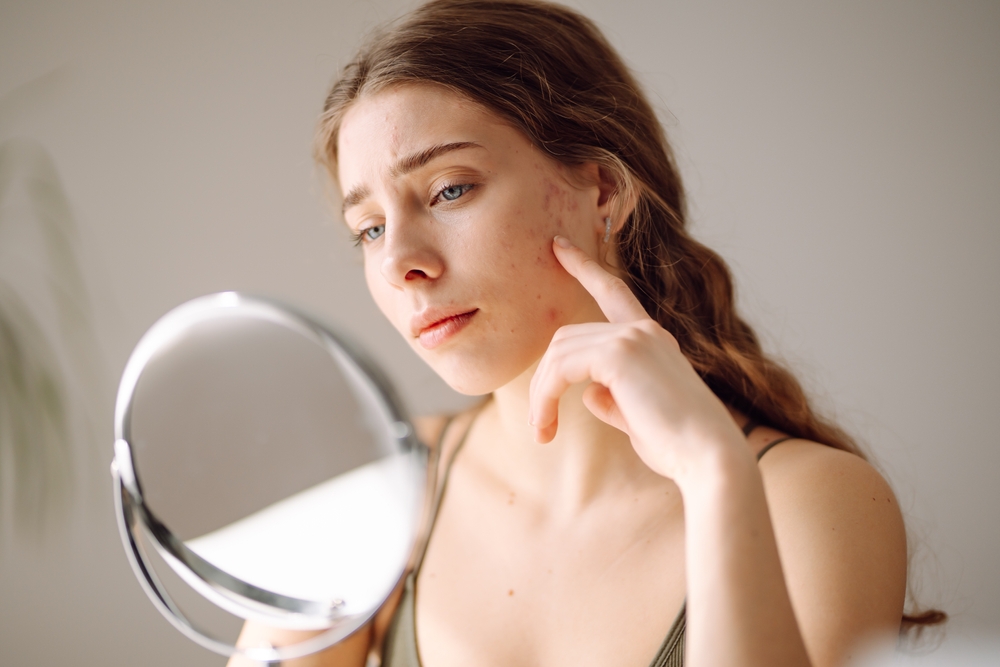Less than 12% of patients complete their course of acne treatment, according to one US study. Side effects and prolonged treatment time are two of the main obstacles facing patients on a range of treatment regimes. Younger people are not only more likely to have acne, but also to abandon their course of medication. Yet there is hope on the horizon for new, fast-acting, easy-to-manage treatments.
Lack of adherence to acne treatment
Acne sufferers today have a range of prescription treatments on offer, including topical retinoids and topical or oral antibiotics.
However, a 2013 US study of more than 24,000 patients, of whom 89.39% were under 18, found that just 11.4% were adherent to the acne medications they were prescribed.
More recently, a study, Topical treatment of acne vulgaris: efficiency, side effects, and adherence rate, led by B Sevimli Dikicier, found that 45.6% of 250 patients prescribed a topical therapy at a Turkish dermatological clinic gave it up within six months.
The most frequently prescribed drugs were antibacterial and benzoyl peroxide combinations, followed by topical retinoids and antibacterial treatments. Patients were more likely to give up retinoid combinations (60%), benzoyl peroxide combinations (44.1%) and retinoids (40%).
Most people in the study were young, with a mean age of 18.6 ± 2.8 years, and more than two-thirds (71.2%) were female. Neither the rate nor the reason for discontinuation differed significantly by sex.
Prolonged treatment time of acne medication
The main reason for abandonment of acne treatment, according to the Sevimli Dikicier study, was unresponsiveness, cited by 62.3% of those who gave up.
Patients with severe acne and those prescribed antibacterial or benzoyl peroxide combinations were more likely to abandon treatment due to unresponsiveness.
In fact, many of today’s acne treatments are effective, but only if patients stick with them – some treatments, such as azelaic acid, must be applied for six-12 months, while others, such as salicylic acid, should be used continuously.
And for the predominantly teenage and young adult acne sufferers, that’s easier said than done – they grow impatient, think the treatment isn’t working, and abandon it.
Side effects of acne treatment
The remaining third (32.7%) abandoned their treatment due to side effects such as irritation, redness, scaling, itching, and stinging.
These were considerably higher in patients with comedonal-type acne, caused by blocked hair follicles, and among those taking retinoid combinations (65.7%).
While the side effects cited by participants in this study were relatively minor and short term – though still bothersome! – some acne treatments have been linked to more severe complications, including depression and anxiety, nausea and vomiting, and elevated liver enzymes.
Topical retinoids should be prescribed to teenage girls and women with caution, as they are contraindicated in pregnancy.
And there are concerns over long-term antibiotic use due to the risk of antimicrobial resistance, with skin conditions accounting for 8% of all primary care antibiotic prescriptions.
The importance of effective acne treatment
Other reasons for lack of adherence to acne medications include the complexity of treatment regimes, patients’ busy lifestyles, forgetfulness, inconvenience, and psychiatric comorbidity.
Yet as acne is usually regarded as a minor, self-limiting condition, does it really matter if patients choose to end their course of treatment early?
First, it’s important to find an effective treatment as early as possible to avoid scarring, which may be lifelong.
Plus, acne can be seriously harmful to people’s mental health – especially at the vulnerable time of adolescence.
Teenagers are often taunted for their spots, while people of all ages may feel less attractive and suffer lower self-esteem. The condition is linked with failure to thrive at school or work, and even suicidal ideation or attempts.
“I think we massively underestimate how much acne will affect people’s self-confidence,” says consultant dermatologist Anjali Mahto. “Social withdrawal is quite common with acne; anxiety, depression.”
New fast-acting acne treatment
Clearly, there is a need for improved acne medication that can enhance people’s quality of life simply and rapidly.
At Arctic Therapies, we are committed to developing novel and transformative medicines to create a better future for people in critical need of new treatment options. Find out more about our treatment for inflammatory skin diseases here.

